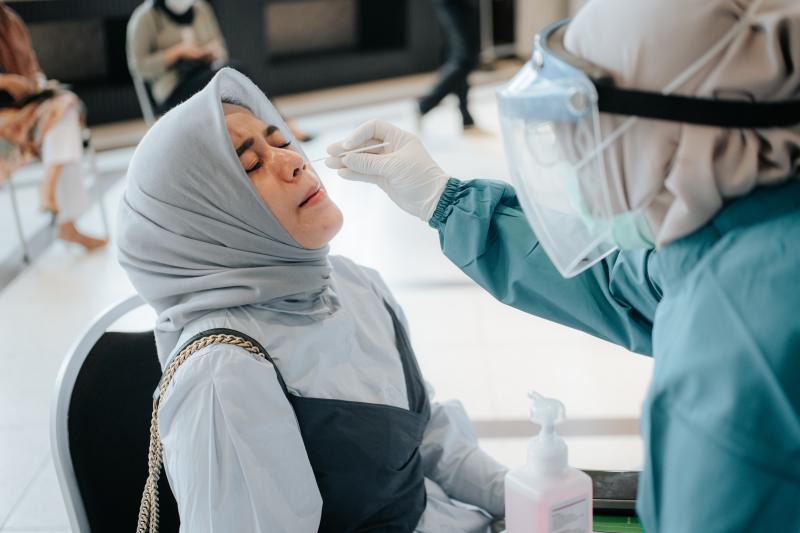COVID–19 Testing
Federal funding is ending for COVID-19 testing across all healthcare systems. When going to a testing site, you may be required to show an insurance card or pay a co-pay.
When to get tested for COVID-19?
- If you are exhibiting symptoms of COVID-19, test immediately.
- If you have been exposed or in close contact with someone who has COVID-19 but have no symptoms, it's recommended to wait at least 5 full days after the exposure before testing. Testing too early may result in an inaccurate outcome.
- If you work or reside in high-risk environments, undergoing regular screening testing may be necessary.
- Consider testing before contact with someone at high risk for severe COVID-19, especially if you are in an area with a medium or high COVID-19 Community Level. You can find your community level by visiting CDC COVID-19 by County.
Viral Tests
Viral tests can detect if you currently have COVID-19 by testing samples from your nose or mouth. There are two main types: nucleic acid amplification tests (NAATs) and antigen tests. In certain circumstances, one test type may be recommended over the other.
- NAATs, like PCR-based tests, are the most reliable for people with or without symptoms and are usually done in a lab.
- Antigen tests are rapid and produce results in 15-30 minutes, but are less reliable, especially for those that do not have symptoms.
- All tests should follow FDA requirements.
- Please see list below for local daily testing sites
Self Testing
Self-tests, also known as at-home tests, typically involve antigen tests that can be administered at any location without the need to visit a particular testing center. To ensure accurate results, it is important to follow the instructions provided by the FDA and the manufacturer, including guidance on the frequency of testing. Consistently testing negative multiple times can boost your confidence in being free from COVID-19 infection.
You can order free self-test kits by visiting covid.gov/tests. Every U.S. household is eligible for 4 free at-home test kits. Order yours today!
"Expired" test kits
To make sure your "expired" self-test kit at home is still useful, visit the FDA COVID-19 test kits page where you'll find that many kits have had their shelf life extended. Don't let the expiration date on the label discourage you from using them if they have been extended!
Make your test count!
Your test results are important! By reporting them, whether positive or negative, you're contributing to public health efforts. This valuable information helps researchers and public health teams. For example it can help determine if a COVID surge is occurring, enabling them to take preventative measures or provide assistance or warning hospitals that a spike in cases may occur. Your actions can make a significant difference in the fight against COVID-19. On this website funded by the NIH, all test results and information is secure.

